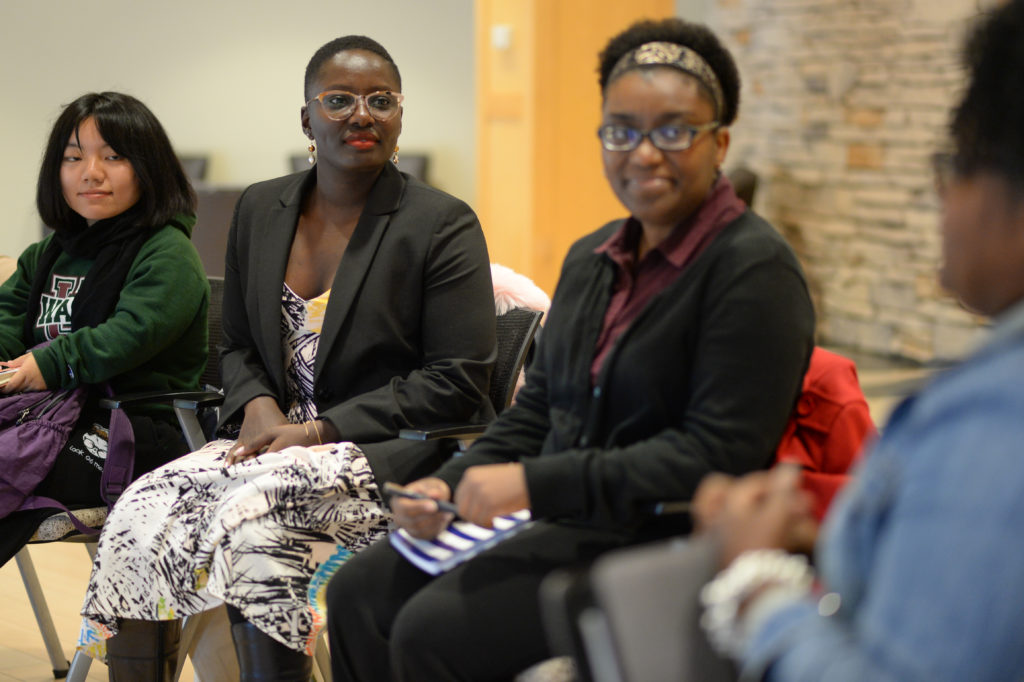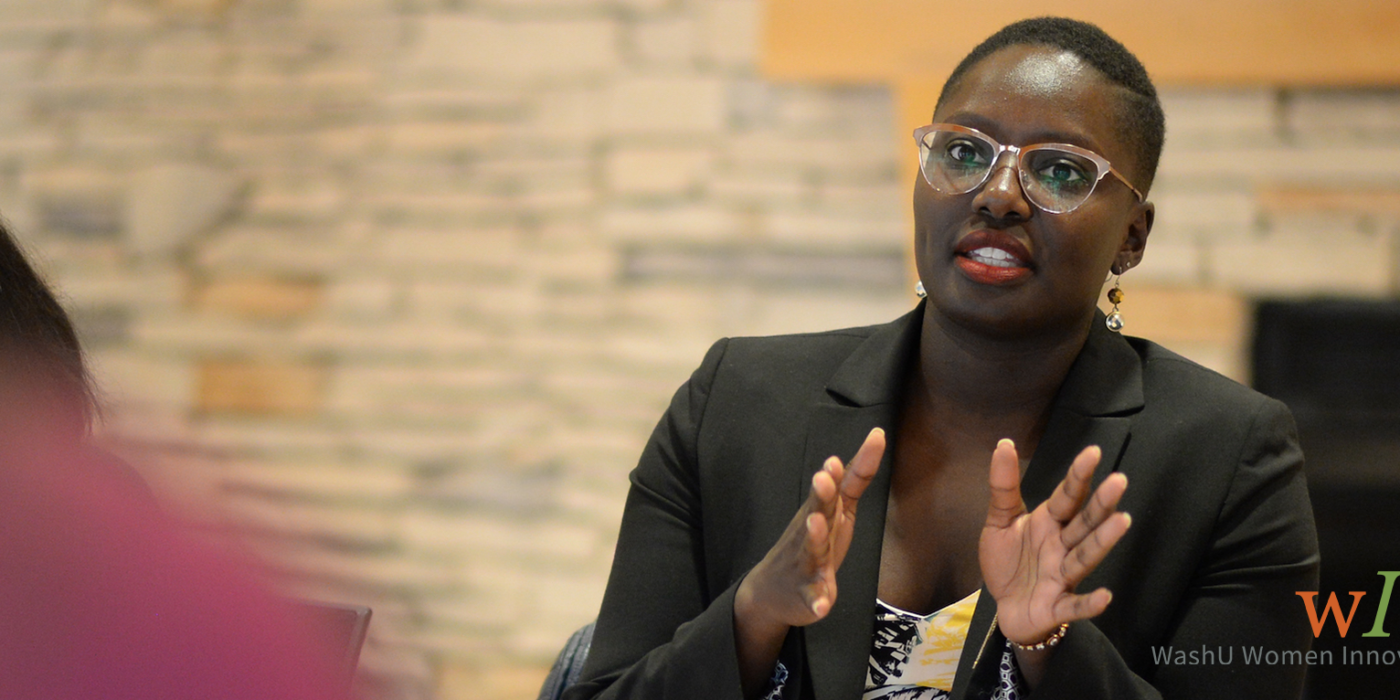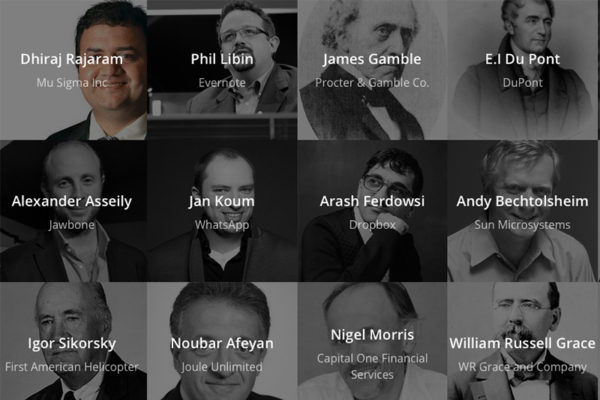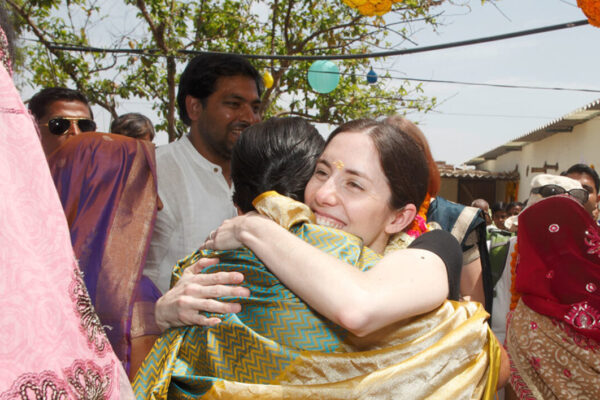Atima Lui, BSBA ’12, was born to a Sudanese refugee father and black activist mother in Topeka, Kan., where her dark skin tone never quite fit in with the standard of beauty in her community.
Today, as founder and CEO of NUDEST (based in New York City), Atima sells software that uses machine-learning to match skin tone as a service to beauty and fashion brands.
She recently returned to Washington University in St. Louis to give a keynote talk at the HER Summit hosted by the Skandalaris Center. We sat down to discuss her philosophy, principles and how women can continue to make strides in the entrepreneurship and innovation fields:
Your entrepreneurship journey started here at WashU. Can you talk more about that?
When I was in high school trying to decide what college I would go to, I wanted to attend a university that had a business undergraduate educational opportunity, one that would allow me to change my major easily in case that didn’t work out, but also one that would set me up to be my own business owner. When I did the initial tour of WashU and saw the Student Entrepreneurial Program (StEP) storefronts, I was so impressed by that and I knew right away “Ok, that’s something I want to do if I get into WashU.”
I’m glad that it worked out; that WashU liked me as much as I liked them! My freshman year, I worked on a business plan for a hair and nail salon, pitched it and had the opportunity to open it as a sophomore. I ran that for two years. It was open 40 hours a week — which is a lot — and I hired cosmetologists in order to render the services. It was a great opportunity to learn how to lead as a servant, who allows the experts to provide services but also provide feedback on what changes need to happen with the business — those experiences were crucial to my entrepreneurial journey.
Much has been made about the distinction between innovation and entrepreneurship. Tell us about your views on the difference between the two, and where NUDEST fits in.
I think that to be a business owner, to run your own thing, that can often be classified as entrepreneurship. When you create something that never existed before, when you create an industry or a category that’s completely new, that is true innovation. An investor I’ve been talking with helped me think through this distinction when we think about Uber. Ridesharing was not an industry or category that existed. That is true innovation.
Running your own company is difficult regardless, but when you are innovating, that’s a special brand of difficulty. You are charting a path forward where there are no obvious examples for you to replicate, and so every day really feels like a big challenge — whether a problem arises that you don’t anticipate, or you’re just trying to reach the goals that you’ve set for yourself and the exact steps you need to take aren’t clear. That’s where that comfort with ambiguity becomes so important.
What do you think needs to be done to address the gender gap in the world of entrepreneurship?
The issue is structural, where the people who have the money to give have benefited from a larger system that has prioritized the male gender over the female gender. There’s no surprise that the people who are making decisions when it comes to giving out money invest in things they understand more personally. I like to give a wacky example: if someone wanted me to invest in a product that was targeted towards men in Tibet, I wouldn’t know the next thing about that. That’s really the outline of the problem: you have people (who are mostly men) with the money, who are less comfortable making investments that are geared towards people who are not men.
It’s an easy answer to say “Just create something the men understand,” but that’s not the solution, because the opportunity is to create services that have been left out by male-dominated industry. I think that a big part of it is making sure that once a woman is in the room, she does everything possible to get to that “yes,” Unfortunately that’s going to look like additional work compared to her male peers, so it’s about how do we prepare her to win.

Confidence is a big part of that. That’s where I feel really grateful for my WashU education. It helped me feel confident in myself and my voice and to take questions from investors with aplomb. It’s necessary because people give money to people who are passionate, confident and persistent. Events like the HER Summit are a great place to connect with other people who can provide that feedback to help get the confidence to where it needs to be, and to help your pitch reflect the things that investors are looking for.
Something that you kept going back to in your keynote address was using your passion as fuel. Why is that so important?
For me, this notion comes from a personal place about feeling insecure about my physical appearance and not meeting beauty standards, but I know that passion can look like a lot of different things for different people. Some people are purely motivated by the outsized returns you can get from starting a company and to those people I say, “More power to them.” However, I know 100 percent that all people who are innovating have to be passionate about what they are doing because the journey — that messy middle between the excitement of starting and the excitement of whatever your exit might be — is difficult no matter who you are. It’s that passion that convinces you to move forward; the majority of startups fail so technically, it’s not logical to move forward. You have to find your fuel, and that passion is what it is for me.
“…people who are innovating have to be passionate about what they are doing because the journey — that messy middle between the excitement of starting and the excitement of whatever your exit might be — is difficult no matter who you are.”
It also involves being prepared to go wherever that journey takes you.
You have to get uncomfortable with the unknown, be open and constantly curious and remove yourself from the company as much as possible. That sounds crazy but the ability to remove your ego from where your product or service might be is important. If something happens where you have to scrap everything and start over, you do it with open arms and with excitement to move forward with more knowledge.
What’s been the most surprising thing to happen to you thus far on your entrepreneurial path?
Being an entrepreneur exposes your weaknesses. The pressure is tremendous. The pressure to succeed you put on yourself, the pressure from investors, the pressure one might feel from the employees who depend on the company. I think that what’s been surprising is how much I’ve learned about myself.
Whatever those weaknesses might be, they’re like the pressure that is used to create a diamond. You become so much stronger, and I know I will be a stronger manager, a stronger contributor to any organization I might create or join, and more resilient because of that type of self-knowledge.
You’ve been very open about the amount of self-reflection and self-work you’ve done as well.
I love the openness of other entrepreneurs that I include in my support network to discuss the thought work that we do, the therapy that we are in and how that is a crucial aspect of building your company. It’s been a genuine competitive advantage for me. Your company only does as well as you are doing, so you have to take care of yourself.
In talking about your next steps, you brought up Africa. What might you want to do there, and why?
I’m open to using my roots as a way to guide me forward. My father being an immigrant from South Sudan, that gives me a desire to look at my roots and see how I can be helpful.
I’ve been to Uganda and it was fantastic. I underestimated how cool it would feel to be in a place where everyone looks like me. I’d never felt that in my life. I think those were early seeds that were planted, because just a month or two later is when I started thinking about starting NUDEST.
I feel like there is so much opportunity for me as a woman, and as a black person who sees herself as a global citizen, to help those who are currently lacking access to services or products that our global economy provides. Thanks to the internet and mobile technology, the continent of Africa is more connected than anyone thought could happen. I’m so excited by that. I’m excited about the massive young population there. I think that a lot of people are afraid to go to environments in developing countries, but I see that as a gold mine. It’s truly a place full of opportunity.




Comments and respectful dialogue are encouraged, but content will be moderated. Please, no personal attacks, obscenity or profanity, selling of commercial products, or endorsements of political candidates or positions. We reserve the right to remove any inappropriate comments. We also cannot address individual medical concerns or provide medical advice in this forum.